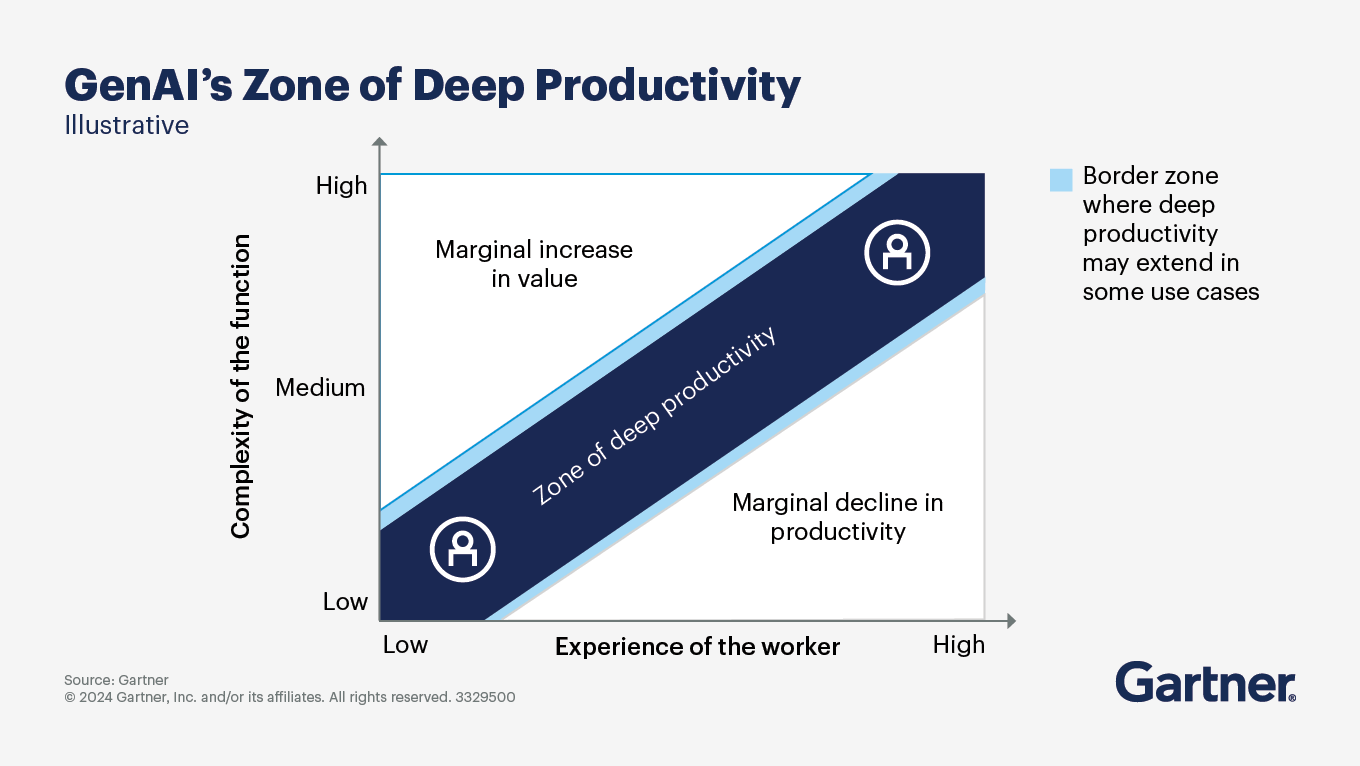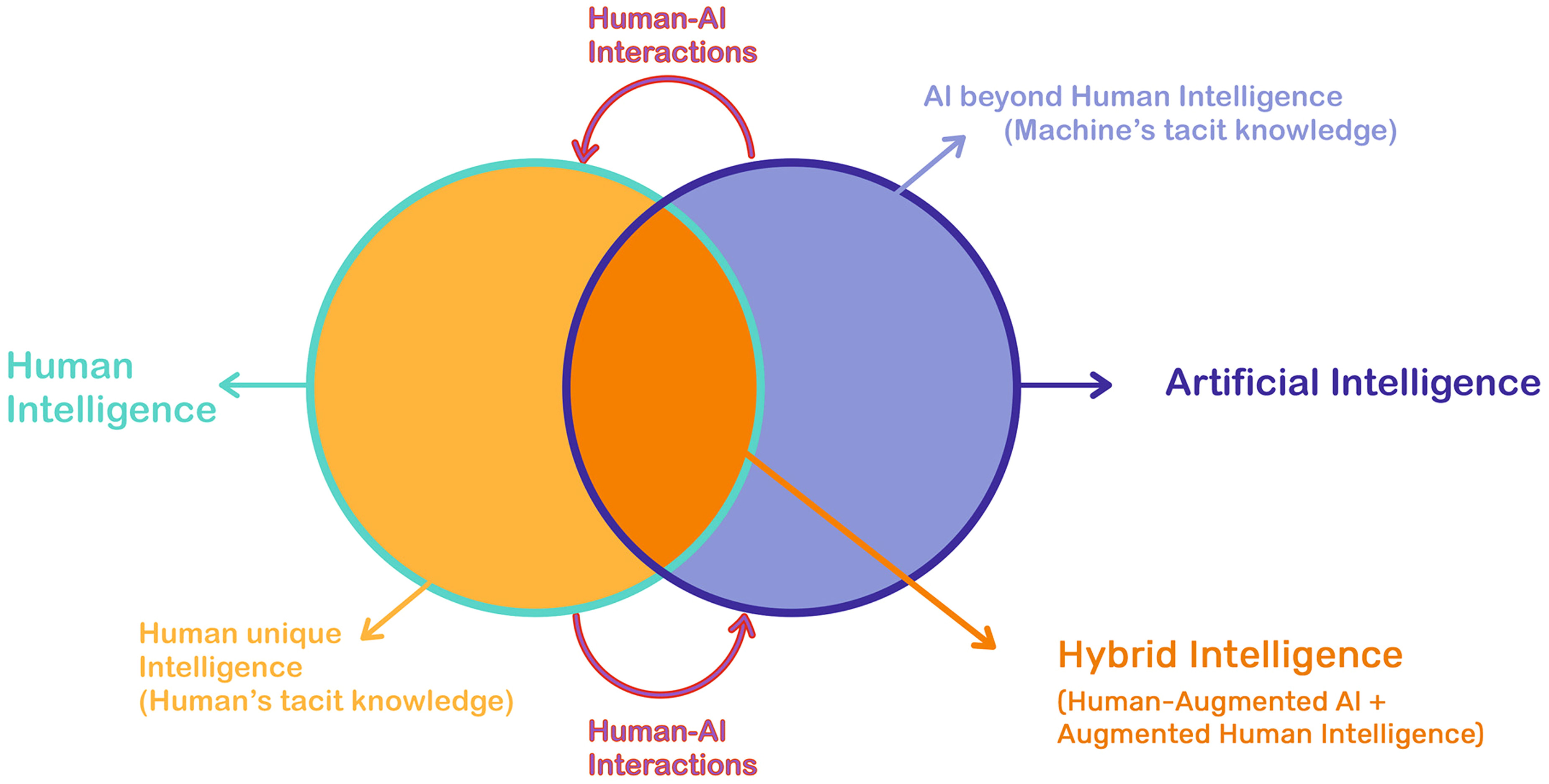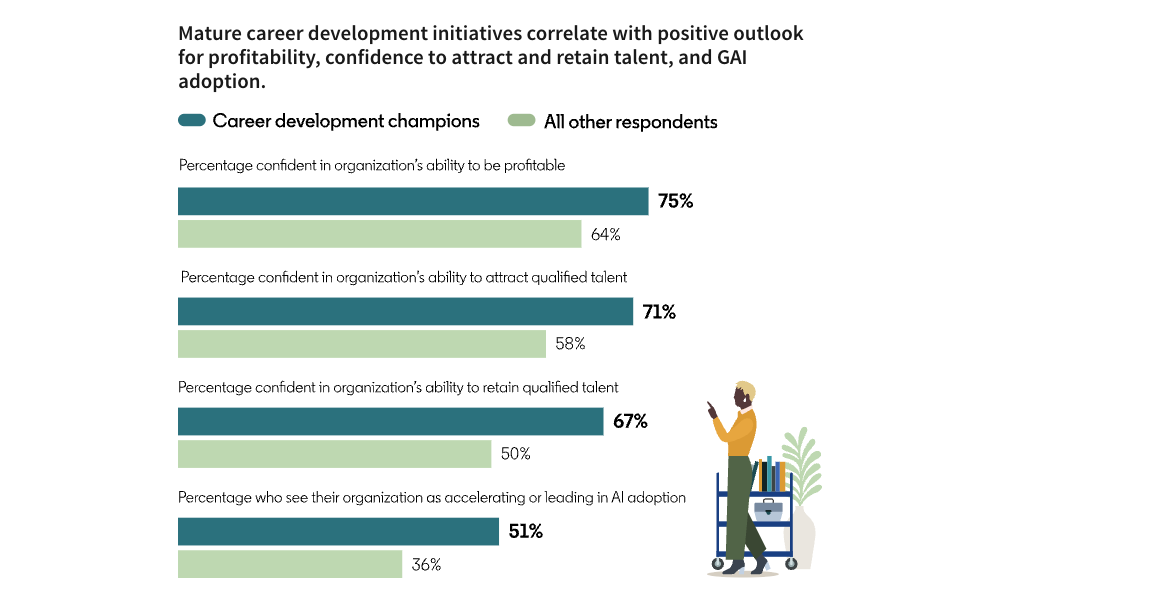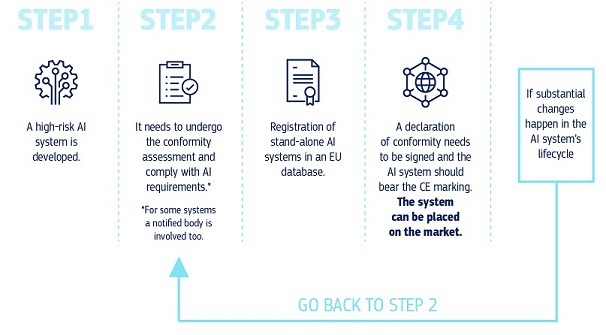The New Era of Human-AI Collaboration
As we progress through 2025, the workplace has undergone a fundamental transformation, with 87% of organizations now integrating AI as a core component of their workforce strategy (Gartner, 2025). The global AI in workplace market is projected to reach $186.6 billion by 2027, growing at a 32.4% CAGR (MarketsandMarkets, 2025). This shift represents more than just technological adoption—it signifies the emergence of a new collaborative paradigm where AI augments human capabilities, creating unprecedented levels of productivity and innovation. Organizations leading this transformation report 47% higher employee satisfaction and 53% greater operational efficiency compared to their peers (Deloitte, 2025).

Human and AI collaboration in the modern workplaceSource: Gartner: Top Strategic Technology Trends for 2025
AI-assisted workers are 3.4x more productive than their non-AI counterparts (MIT Sloan, 2025)
78% of knowledge workers now use AI tools daily (Microsoft Work Trend Index, 2025)
Companies with mature AI collaboration strategies see 2.1x faster time-to-market (McKinsey, 2025)
AI has created 97 million new job roles while transforming 85 million others (WEF Future of Jobs, 2025)
Augmented Intelligence in Practice
The concept of augmented intelligence—where AI enhances human decision-making rather than replacing it—has become the dominant model in 2025. Advanced AI copilots now handle 43% of routine cognitive tasks, freeing human workers to focus on complex problem-solving and creative endeavors (Accenture, 2025). These AI systems have evolved beyond simple automation, offering contextual understanding, predictive insights, and even emotional intelligence capabilities. In healthcare, for instance, AI-assisted diagnostics have improved accuracy by 32% while reducing physician burnout by 41% (JAMA, 2025). Similarly, in creative fields, AI tools have become collaborative partners, with 68% of designers reporting enhanced creativity when working with AI assistance (Adobe Creative Pulse, 2025).

Augmented intelligence enhancing human capabilitiesSource: Sage Journals: Artificial intelligence, human intelligence and hybrid intelligence based on mutual augmentation
AI augmentation boosts decision-making speed by 4.7x (MIT CSAIL, 2025)
67% of employees feel more empowered with AI assistance (PwC Workforce Pulse, 2025)
Error rates decrease by 58% with human-AI collaboration (Stanford HAI, 2025)
92% of enterprizes report improved innovation outcomes with augmented intelligence (BCG, 2025)
The Hybrid Work Ecosystem
The workplace of 2025 is no longer defined by physical boundaries, with 74% of companies adopting a hybrid-first approach (Gensler Workplace Survey, 2025). AI has become the invisible infrastructure enabling seamless collaboration across distributed teams, with intelligent scheduling, real-time translation, and context-aware virtual meeting assistants becoming standard. The most advanced workplaces now feature AI-powered office environments that automatically adjust lighting, temperature, and even desk arrangements based on employee preferences and work patterns. These smart workplaces have demonstrated 37% higher employee satisfaction scores and 28% greater productivity compared to traditional office setups (Harvard Business Review, 2025).
AI-powered hybrid work environmentSource: McKinsey: The Future of Hybrid Work
AI-driven scheduling saves employees 6.2 hours per week (Microsoft 365 Insights, 2025)
83% of workers prefer hybrid work with AI support (Gallup, 2025)
Smart offices reduce real estate costs by 42% (CBRE, 2025)
Virtual collaboration tools powered by AI see 89% adoption rate (Zoom IQ, 2025)
Reskilling for the AI-Augmented Workforce
As AI transforms job roles, the skills landscape has undergone a dramatic shift. The World Economic Forum estimates that 50% of all employees will need reskilling by 2027, with AI literacy becoming as fundamental as digital literacy (WEF, 2025). Forward-thinking organizations have responded with comprehensive learning ecosystems that combine AI-powered personalized learning paths with human mentorship. These programs focus on developing uniquely human skills—critical thinking, emotional intelligence, and complex problem-solving—that complement AI capabilities. The most successful initiatives have achieved 3.5x higher employee retention rates and 2.8x faster skill acquisition compared to traditional training methods (LinkedIn Workplace Learning Report, 2025).

AI-powered learning and developmentSource: LinkedIn Learning: Workplace Learning Report 2025
AI-powered learning platforms improve skill retention by 73% (Deloitte, 2025)
92% of companies now offer AI literacy programs (PwC, 2025)
Employees spend 47% more time on learning than in 2023 (Udemy, 2025)
Companies investing in AI upskilling see 3.1x higher revenue growth (BCG, 2025)
Ethical Considerations in AI-Augmented Work
As AI becomes deeply embedded in the workplace, ethical considerations have moved to the forefront. The European Union's AI Act (2025) and similar regulations worldwide have established strict guidelines for AI transparency, accountability, and bias mitigation in the workplace. Leading organizations now employ Chief AI Ethics Officers and implement AI governance frameworks to ensure responsible AI deployment. These measures address critical concerns such as algorithmic bias, data privacy, and the psychological impact of human-AI collaboration. Companies that have adopted comprehensive AI ethics programs report 2.4x higher employee trust in AI systems and 3.1x greater customer satisfaction (Edelman Trust Barometer, 2025).

Ethical AI in the workplaceSource: EU AI Act: Guidelines for Workplace Implementation
89% of employees want transparency in AI decision-making (Edelman, 2025)
AI ethics training reduces bias incidents by 67% (MIT Tech Review, 2025)
72% of companies now conduct regular AI bias audits (Gartner, 2025)
Ethical AI practices improve talent acquisition by 58% (Deloitte, 2025)
The Future of Human-AI Teams
Looking ahead to 2030, the boundary between human and AI capabilities will continue to blur, giving rize to truly symbiotic work environments. Emerging technologies like brain-computer interfaces and emotion AI promize to create more intuitive and natural collaboration between humans and machines. The most innovative organizations are already experimenting with neural interfaces that allow direct thought-controlled interaction with AI systems, potentially revolutionizing how we work. These advancements, combined with ongoing improvements in AI's contextual understanding and emotional intelligence, suggest a future where the most successful professionals will be those who can most effectively partner with AI to achieve their goals.

The future of human-AI teamsSource: World Economic Forum: The Future of Jobs 2025
Brain-computer interface market to reach $27.7B by 2030 (Grand View Research, 2025)
Emotion AI adoption growing at 42% CAGR (MarketsandMarkets, 2025)
75% of executives believe AI will be on leadership teams by 2030 (Deloitte, 2025)
92% of business leaders see AI as a key driver of future innovation (PwC, 2025)
References
Gartner. (2025). Top Strategic Technology Trends for 2025.
McKinsey Global Institute. (2025). The Future of Work After COVID-19.
World Economic Forum. (2025). The Future of Jobs Report 2025.
Deloitte. (2025). Human Capital Trends: The Postdigital Workplace.
PwC. (2025). AI Predictions 2025: The Future of Work.
MIT Sloan Management Review. (2025). The State of AI in the Enterprize.
Harvard Business Review. (2025). Leading the AI-Powered Organization.
Accenture. (2025). Technology Vision 2025: AI and Me.
LinkedIn. (2025). Workplace Learning Report 2025.
European Commission. (2025). AI Act Implementation Guidelines.
Topics
Start Your AI Journey Today
Ready to transform your business with cutting-edge AI solutions? Contact our team of experts to discuss your project.
Schedule a Consultation